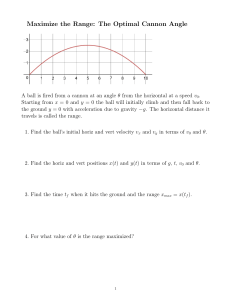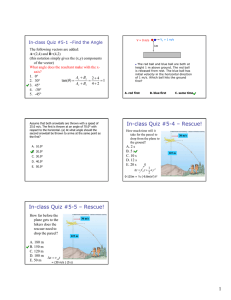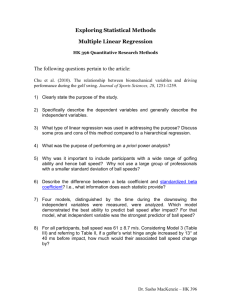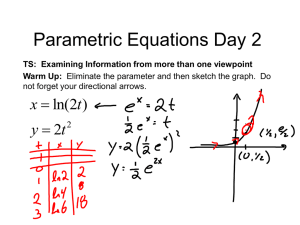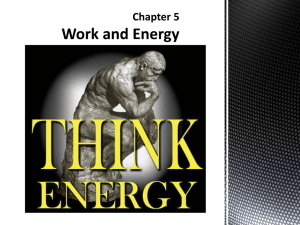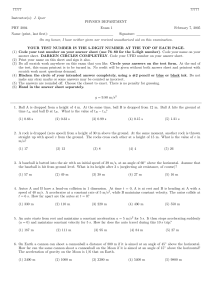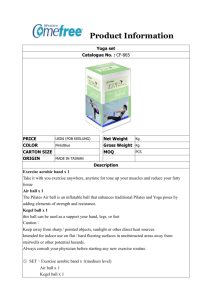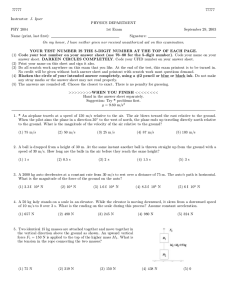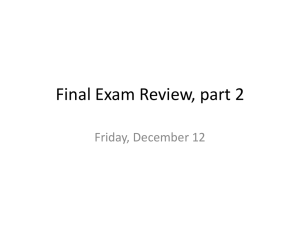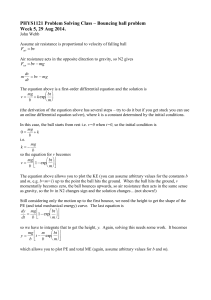UConn Physics 121 Q Fall 2007
advertisement
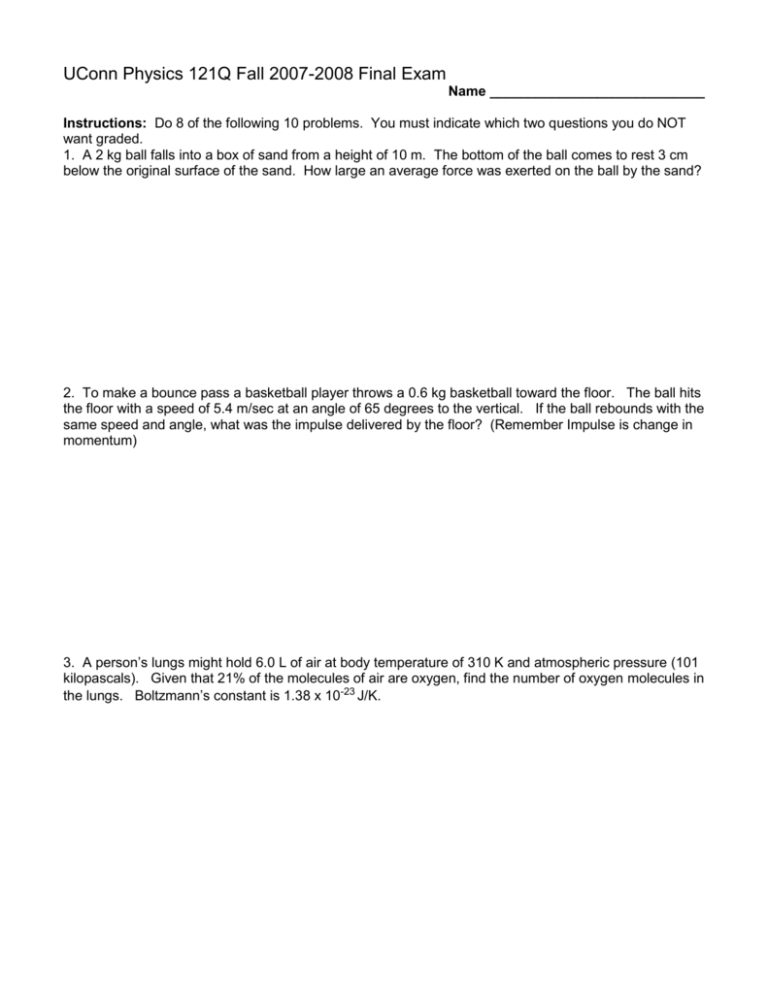
UConn Physics 121Q Fall 2007-2008 Final Exam Name ____________________________ Instructions: Do 8 of the following 10 problems. You must indicate which two questions you do NOT want graded. 1. A 2 kg ball falls into a box of sand from a height of 10 m. The bottom of the ball comes to rest 3 cm below the original surface of the sand. How large an average force was exerted on the ball by the sand? 2. To make a bounce pass a basketball player throws a 0.6 kg basketball toward the floor. The ball hits the floor with a speed of 5.4 m/sec at an angle of 65 degrees to the vertical. If the ball rebounds with the same speed and angle, what was the impulse delivered by the floor? (Remember Impulse is change in momentum) 3. A person’s lungs might hold 6.0 L of air at body temperature of 310 K and atmospheric pressure (101 kilopascals). Given that 21% of the molecules of air are oxygen, find the number of oxygen molecules in the lungs. Boltzmann’s constant is 1.38 x 10-23 J/K. 4. The king’s crown has a mass of 1.3 kg. However, when it is weighed while it is immersed in water its apparent weight is 11.17 newtons. The density of gold is 19.3 kg/m3 . Is the crown pure gold? Prove your answer. 5. A football game begins with a kickoff in which the ball travels a horizontal distance of 41 m before being caught. If the ball was kicked at an angle of 40 degrees above the horizontal, what was the initial speed? 6. The amount of solar energy delivered to a horizontal surface is on average 160 watts/ m2. Assuming 10% efficiency for absorption and conversion to usable heating, how many liters of water can be heated from zero degrees C to 20 degrees C in a 24 hour period by a 3 m2 solar panel? The specific heat of water is 4185 J / kg K. 7. Give two statements of the second law of thermodynamics. 8. A sailor wants to travel due east at a velocity of 10 km/hr with respect to a coordinate system fixed on land. The gulf stream is moving north at 4 km/hr. At what speed with respect to the water should the sailboat proceed? 9. If the earth has mass M and a satellite is in circular orbit a distance R from the center of the earth, and the gravitational constant is G, derive the magnitude of the satellite’s velocity v in terms of G,M, and R 10. A 10 kg mass on frictionless incline is pulled by a rope, over a frictionless pulley, attached to an 8 kg mass as shown. What will be the acceleration of the system and the rope’s tension? Make sure to indicate the direction of the acceleration. 10kg 8 kg 50*
